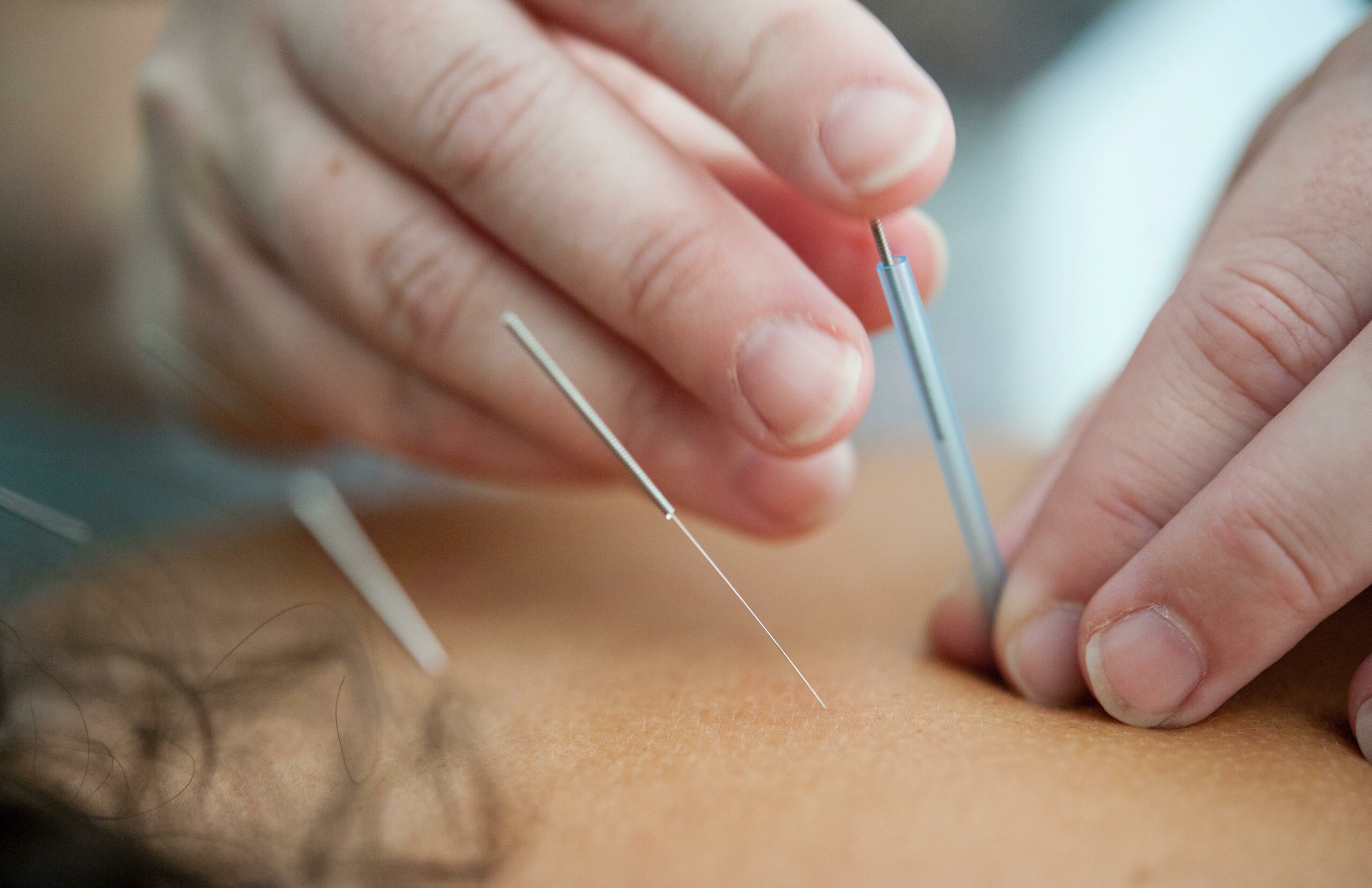Are you curious about the origins of acupuncture? Wondering when this ancient healing practice first came into existence? Look no further! In this article, we will unravel the fascinating history of acupuncture and answer the burning question: When was acupuncture invented? As an experienced medical historian and research enthusiast, I will take you on a journey through time, exploring the origins and transformation of this ancient therapeutic technique. So, prepare to delve into the past and discover the secrets behind one of the world’s oldest forms of medicine.

When Was Acupuncture Invented?
Acupuncture, one of the oldest healing practices in the world, has its origins deeply rooted in ancient China. But when was acupuncture actually invented? Delving into the historical records and archaeological findings, we can begin to unravel its ancient origins.
The first mentions of acupuncture can be traced back several centuries leading up to the Common Era. It was recorded in the famous Chinese medical text, the Yellow Emperor’s Classic of Internal Medicine, which dates all the way back to 200 BC. However, the practice itself predates this written documentation.
Archaeologists have found sharpened stones and bones dating back to around 6000 BCE, which have been interpreted as instruments for acupuncture treatment. These ancient artifacts suggest that acupuncture may have existed in a more primitive form long before it was recorded in written texts.
The invention of acupuncture can be seen as an ingenious response to the early understanding of the human body and the belief in Qi, the vital energy that flows through our bodies. Acupuncture involves the insertion of thin needles into specific points on the body, known as acupoints, to stimulate and rebalance the flow of Qi.
Over time, acupuncture evolved and diversified, giving rise to various philosophical and technical approaches. These different variants of acupuncture emerged from distinct schools of thought, further enriching this ancient practice.
It is important to note that traditional Chinese medicine, of which acupuncture is a part, is not solely based on scientific knowledge. While its theories and practices may not align with modern scientific understanding, its historical and cultural significance cannot be disregarded. The traditional Chinese medical system, including acupuncture, has been an integral part of Chinese culture and society for thousands of years.
Interestingly, acupuncture faced a period of prohibition in China in 1929, along with the outlawing of other forms of traditional medicine. However, after the establishment of the Communist government in 1949, the legitimacy of acupuncture was reinstated, recognizing its value as a therapeutic modality.
Throughout history, acupuncture has been utilized for various purposes, including pain relief, disease treatment, and overall health improvement. Its effectiveness and benefits, although subject to ongoing debates and scientific studies, have attracted the curiosity and interest of many.
In conclusion, acupuncture has a long and fascinating history that dates back thousands of years. From its humble beginnings as a primitive practice to its recognition as a well-established therapeutic modality, acupuncture has evolved and endured. The ancient origins of acupuncture may remain shrouded in mystery, but its impact on traditional Chinese medicine and alternative healing practices is undeniable.
“Through the intertwining threads of history and culture, acupuncture has stood the test of time, captivating the hearts and minds of countless individuals seeking healing and balance.”
Acupuncture has been practiced for thousands of years and continues to captivate individuals worldwide. Have you ever wondered about the intriguing and fun facts surrounding this ancient Chinese therapy? Allow me to enlighten you with some fascinating information about acupuncture. Did you know that acupuncture can help reduce stress and anxiety? It’s true! By targeting specific points on the body, acupuncture can release endorphins, also known as the “feel-good” hormones, leaving you feeling calm and relaxed. Additionally, did you know that acupuncture needles are incredibly thin, about the width of a strand of hair? This makes the procedure virtually painless and minimizes any discomfort during treatment. If you’re curious to learn more fun facts about acupuncture, click here: fun facts about acupuncture. Prepare to be amazed by the wonders of this ancient healing art!
When Was Acupuncture Invented?
The ancient origins of acupuncture are deeply rooted in history and continue to fascinate researchers and practitioners alike. Delve into the captivating world of traditional healing with a journey into the past. Discovering the birth of acupuncture is an exploration of ancient cultures, their beliefs, and their understanding of the human body. The history of acupuncture remains a captivating mystery that has been handed down through generations. Uncovering the history of acupuncture reveals the wisdom and knowledge of our ancestors, offering insights into the foundations of this remarkable practice.
So, if you’re curious about the ancient origins of acupuncture, click here to explore the intriguing path that leads to its birth. Journey through the ages with us and immerse yourself in the captivating history of acupuncture.
Ancient origins of acupuncture
Or, if you’re eager to uncover the fascinating stories behind the birth of acupuncture, click here to unlock the secrets of this incredible practice.
Discovering the birth of acupuncture
Ready to delve deeper into the hidden past of acupuncture? Click here to begin your journey of discovery and unravel the mysteries that lie within the history of this ancient healing art.
Uncovering the history of acupuncture
Embark on a captivating exploration today and unveil the ancient origins and fascinating history of acupuncture.
FAQ
Q: What is acupuncture?
A: Acupuncture is a form of alternative medicine that originated in China and is a component of traditional Chinese medicine (TCM). It involves the insertion of thin needles into the body at specific acupoints for various purposes such as pain relief, disease treatment, and improving overall health.
Q: When was acupuncture invented?
A: Acupuncture originated in China and was first mentioned in documents dating from a few hundred years leading up to the Common Era. The practice of acupuncture was recorded in the Yellow Emperor’s Classic of Internal Medicine, a document dating back to 200 BC. However, the use of sharpened stones and bones that date from about 6000 BCE has been interpreted as instruments for acupuncture treatment.
Q: Is acupuncture based on scientific knowledge?
A: The theories and practices of traditional Chinese medicine, including acupuncture, are not based on scientific knowledge and have been characterized as quackery. While acupuncture has been used for thousands of years and has its own explanations and principles, it is important to note that the scientific community does not fully understand the mechanisms by which it works.
Q: Has acupuncture faced any challenges to its legitimacy?
A: Acupuncture was outlawed in China in 1929 along with other forms of traditional medicine. However, its legitimacy was reinstated after the establishment of the Communist government in 1949. Today, acupuncture is widely practiced and accepted as a legitimate form of therapy in many countries around the world.
Q: Where can I find more information about the history of acupuncture?
A: The history of acupuncture has been documented in ancient Chinese texts, European medical descriptions, and academic research articles. If you are interested in exploring the origins and development of acupuncture further, these sources can provide more in-depth information about this ancient healing practice.
- Unveiling the Enigma: Mansoureh Khojasteh Bagherzadeh’s Public Appearances & Private Life in Iran - July 18, 2025
- Unveiling the Mystery: Mansoureh Khojasteh Bagherzadeh’s Husband: A Rare Glimpse into a Private Life - July 18, 2025
- Unveiling Masoud Khamenei’s Mother: Power, Influence, and Iran’s Future - July 18, 2025
















